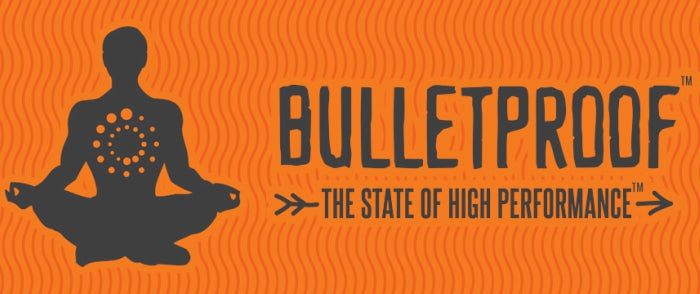- Say sayonara to sugar: Sugar causes systemic inflammation, is rough on the gut lining and feeds bad bacteria. Sugar also promotes the overgrowth of yeast and candida (a fungus), all of which cause inflammation of the gut lining and may contribute to bacterial overgrowth in the small intestine.
- Choose a diverse diet: Eating a variety of high-quality vegetables, fats, and proteins introduces not just good bacteria, but many different bacteria into your microbiome, which will improve and sustain the integrity of your microbiome.
- Avoid anti-nutrients: Food toxins like mold, lectins, phytates and oxalates can cause inflammation and limit your absorption of essential vitamins and minerals. In some cases, these compounds can even contribute to severe gut and autoimmune reactions. These anti-nutrients can be found in many grains, legumes, nuts and seeds. Oxalates are found in many otherwise healthy foods like broccoli, kale and spinach. Not everyone is sensitive to these foods, so make sure to test your individualized response to high-oxalate foods. In general, source your food wisely and look into soaking and sprouting your nuts and seeds to limit their phytate content.
- Get rid of grains: Grains not only contain a large amount of gut-aggravating lectin and phytates, but they also may contain difficult-to-digest proteins like gluten. Once your gut is healed, you can try introducing small amounts of soaked, fermented, or sprouted grains, like white rice, gluten-free oats, buckwheat, or quinoa. The fermentation or sprouting cut the amount of anti-nutrients and make these grains easier to digest. But gluten-containing grains should be avoided indefinitely, especially for those with autoimmune conditions, chronic allergies, or irritable bowel syndrome.
- Two words: local and fresh: I’m a huge fan of fresh, organic, local meat and vegetables. There is no better way to source nutrient-dense foods and support your local economy. And because our gut bacteria are directly related to the bacteria found in our soil, eating high-quality, organic produce is essential to robust gut health.
- Choose your fibers wisely: Depending on the severity of your leaky gut or gut dysbiosis, you may want to limit or avoid starchy and fibrous vegetables or those with prebiotics. Fiber and prebiotics are great for feeding healthy gut bacteria, but they can also feed the bad guys. If you suffer from small intestinal bacterial overgrowth, or SIBO, you’ll want to treat that before bringing in a ton of prebiotic and fibrous foods.
- Ditch drinking: Alcohol reduces bacterial diversity and causes inflammation of the intestinal lining. Not good when you’re trying to heal.
- Fermented foods may help: Although these foods are rich in probiotics, fermented foods like sauerkraut, kombucha, and pickles can also cause a histamine reaction in certain individuals. If you can tolerate dairy, fermented foods like yogurt and kefir are high in probiotic bacteria that can be beneficial to the gut.
- Skip conventional dairy or eliminate dairy altogether: Dairy contains the protein A1 casein that’s rough on the gut and can cause allergic reactions and sensitivities in many people. About 75 percent of the world’s population intolerant to lactose, the sugar in milk products. Not to mention the fact that commercial pasteurization diminishes vital enzymes inherent in milk products, making lactose even more difficult to digest. I recommend only grass-fed organic, raw milk, or yogurt from A2 cows. If you suspect you’re still sensitive to dairy, skip it altogether.
- Prebiotics: Prebiotics feed intestinal bacteria that produce short-chain fatty acids (SCFA), which support colon health. Resistant starches like banana flour, plantain flour, cassava, and raw potato starch are great in small quantities.
- Digestive enzymes: Your small intestine, pancreas, stomach, and salivary glands produce enzymes that help you digest your food properly. But the production of these enzymes diminishes naturally with age and may be even more limited when the health of the gut is compromised. Try removing enzyme inhibitors like grains and legumes from your diet and supplementing with digestive enzymes.
- Betaine HCL: Betaine HCL may help improve fat and protein digestion if you have low stomach acid due to chronic stress, age, or autoimmune disease.
- Activated Charcoal: Charcoal is not just for the grill. Activated charcoal is also an ancient and scientifically backed remedy. It’s used to absorb endotoxins that cause gastrointestinal disease and remove toxins from processed, low-quality foods. Take activated charcoal anytime you’re unsure of the quality of your food.
- Collagen: Collagen is a protein that makes up a majority of the connective tissue in your body, including your joints, hair, skin, and nails. Collagen and bone broth offer vital amino acids that are necessary for tissue repair in the GI tract.
- L-Glutamine: Adding l-glutamine to your protocol is a This anti-inflammatory amino acid promotes healing in the GI tract, while promoting muscle recovery and brain health.






















